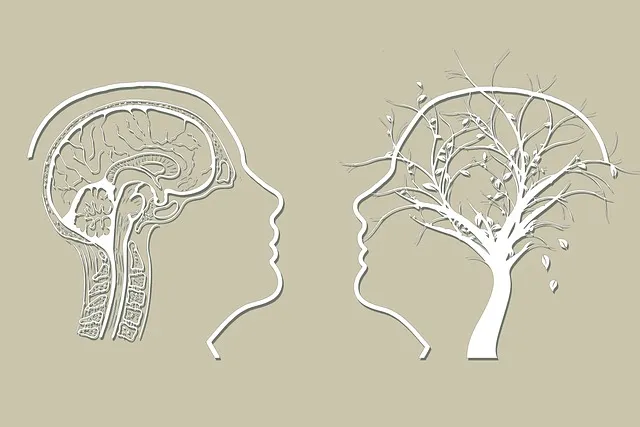The Kaiser Permanente mental health access center in Parker prioritizes cultural sensitivity as a key factor for effective mental healthcare delivery. Through tailored approaches, empathy-building strategies, and initiatives like the Mental Wellness Podcast Series, the center ensures personalized care that respects diverse cultural identities. Their multi-faceted strategy includes community outreach programs, peer support groups, and mental wellness journaling exercises to overcome cultural barriers, enhancing access and outcomes for all communities served.
In today’s diverse society, cultural sensitivity is paramount in mental healthcare practice. Understanding and respecting cultural nuances can significantly enhance patient outcomes. This article explores this critical aspect through three key sections: “Understanding Cultural Sensitivity,” delving into its foundational role; “The Kaiser Permanente Model,” showcasing an integrated approach; and “Overcoming Barriers,” providing strategies for mental health access centers to foster cultural sensitivity, inspired by the work of Parker et al.
- Understanding Cultural Sensitivity: A Foundation for Effective Mental Healthcare
- The Kaiser Permanente Model: Integrating Cultural Competence in Practice
- Overcoming Barriers: Strategies for Enhancing Cultural Sensitivity in Mental Health Access Centers
Understanding Cultural Sensitivity: A Foundation for Effective Mental Healthcare

Understanding Cultural Sensitivity is a cornerstone for delivering effective mental healthcare services, especially within diverse communities like those served by Kaiser Permanente Mental Health Access Centers. With locations across various regions, including Parker, these centers have recognized the imperative of cultural sensitivity in their approach to mental wellness. This involves a deep understanding and appreciation of different cultural backgrounds, beliefs, and practices that shape individuals’ experiences with mental health issues.
By adopting empathy-building strategies, mental health professionals can create safe spaces for patients from diverse ethnic, racial, and socioeconomic groups. Such an inclusive environment fosters open communication, encouraging individuals to share their unique perspectives and concerns. This tailored approach not only enhances the accessibility of mental healthcare services but also promotes anxiety relief and supports overall mental wellness. The Kaiser Permanente Mental Health Access Centers’ commitment to cultural sensitivity, combined with innovative programs like a Mental Wellness Podcast Series Production, ensures that every patient receives personalized care that respects and celebrates their cultural identity.
The Kaiser Permanente Model: Integrating Cultural Competence in Practice

The Kaiser Permanente Model offers a pioneering approach to integrating cultural competence within mental healthcare practice. This model emphasizes the importance of understanding and respecting diverse cultural backgrounds, beliefs, and values among patients. By adopting this framework, mental health professionals at Kaiser Permanente access centers in Parker, Colorado, are equipped with tools to deliver more personalized and effective care.
The strategy involves ongoing training and education for healthcare providers, focusing on burnout prevention strategies for healthcare providers and stress management workshops organized by the organization. This proactive approach ensures that emotional healing processes can unfold seamlessly, catering to the unique needs of each patient. The Kaiser Permanente Model serves as a beacon, demonstrating how cultural sensitivity can be seamlessly woven into everyday practice, ultimately enhancing the overall mental health access and outcomes for diverse communities.
Overcoming Barriers: Strategies for Enhancing Cultural Sensitivity in Mental Health Access Centers

Overcoming barriers to cultural sensitivity in mental healthcare requires a multifaceted approach, especially within centers like Kaiser Permanente’s mental health access centers in Parker. One key strategy is Community Outreach Program Implementation. Engaging with diverse communities through cultural events, educational workshops, and peer support groups fosters trust and understanding. This not only improves access to mental health services but also ensures that these services are tailored to meet the unique needs of different cultural groups.
Another effective method involves incorporating Mental Wellness Journaling Exercise Guidance into treatment plans. Encouraging individuals to reflect on their experiences and emotions in a safe, culturally sensitive space can help them process trauma and strengthen coping mechanisms. This practice, combined with evidence-based therapies, has shown promising results in addressing issues like Depression Prevention. By providing inclusive care that respects and values diverse cultural backgrounds, Kaiser Permanente’s mental health access centers in Parker can create a more equitable and effective healing environment.
Cultural sensitivity is a cornerstone of effective mental healthcare, as evidenced by models like the Kaiser Permanente approach. By integrating cultural competence, such as that demonstrated at Kaiser Permanente mental health access centers in Parker, we can significantly enhance patient outcomes and address barriers to care. Overcoming challenges through strategic initiatives ensures that mental healthcare services become more inclusive and accessible to diverse communities, fostering a supportive environment for all individuals seeking support.






